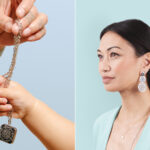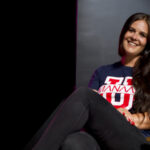Creating stronger communities, Fiji style
For New Zealand wholesale and retail businesses seeking unique, handmade, fairly-traded products, the Nama Fiji and Rise Beyond the Reef brands tick so many boxes. New Zealanders are known for […]
For New Zealand wholesale and retail businesses seeking unique, handmade, fairly-traded products, the Nama Fiji and Rise Beyond the Reef brands tick so many boxes.
New Zealanders are known for being more conscious and responsible than the average buyer; the importance of buying quality, community-made products is evident in the domestic market.
However, many people are unaware of the impact Covid-19 had on international organisations who heavily relied on tourism to financially support vulnerable minorities in the Pacific region.
The Fiji Consulate & Trade Commission ANZ is committed to mitigating these effects by promoting organisations which are not only supporting indigenous women but also creating amazing products. The Auckland based team is currently liaising with both the public and private sector in New Zealand to open paths to market for some of these brands.
Rise Beyond the Reef and Nama Fiji are two authentic artisan brands producing products out of some of Fiji’s most remote and marginalised locations; in both cases, the proceeds directly benefit the indigenous women who make the items, their families and their communities.
Proudly community made
For Janet Lotawa, founder of Rise Beyond the Reef (RBTR), the core of her business is about economic justice for marginalised communities – and women in particular. “It’s also about placing value on indigenous populations, their leadership, and taking a lead role in addressing global climate change.”
Since launching RBTR in 2015, Janet says their artisans have earned more than FJD$600,000. But it’s not just about the money – it’s about shifting harmful gender norms.
“In Fiji, the rates of gender based violence are greater than 70 percent. This hurts everybody, not just the survivors. So we use economic development to build trust with women and men, and to then approach harder, more taboo topics.”
RBTR’s product design process represents people and place, while considering functionality, price and market demand. It’s a delicate balancing act, but one that Janet and her team achieve successfully year after year.
Progress has been remarkable. Janet says they have a growing number of wholesale retail partners outside Fiji. “We have more than 1,000 women on our waitlist to join the program, and with market access such a significant issue in the Pacific, we are working hard to grow our e-commerce trading so we can increase the number of local women we work with. This year, we have close to 400.”
Janet’s proud of what they’ve achieved so far – particularly the leadership capacity of the women they partner with.
“It’s also been enjoyable to grow our capacity to work in a variety of Fiji’s remote regions. Time is precious, the clock is ticking fast on preserving and promoting rather than losing traditional knowledge. It feels good to know we’re doing our part to ensure [that knowledge] can flourish rather than diminish in the face of globalisation.”
She’s philosophical about the “massive” effect Covid-19 has had on the business. “In March 2020 we lost our two major markets overnight – tourism and conferences. So we had to really commit to keep moving forward. It has been tough, but thanks to e-commerce we are starting to stabilise our markets again.”
Janet says they hope consumers will continue to consider the impact or vote they can have with their purchases. “Whether it’s our hand-made, fairly-traded products or another artisan program out there. How we all spend really does count.”
Looking ahead, RBTR’s goal is to increase production and consistently work with up to 1200 women. It’s about creating a solid model for women-led value and supply chains, working with rural and remote indigenous women and their communities.
“We also are working to further develop our work on gender equality and addressing harmful norms in communities,” explains Janet. “And creating communities of total abundance, where everyone thrives.”
High impact business
Google the word ‘Nama’ and you’ll discover an edible seaweed native to Fiji, and considered a delicacy. Nama is sustainably harvested by the women of Fiji’s far north Yasawa Island group and is the key ingredient in a range of skincare products marketed by Essence Group Fiji under the Nama brand.
For Essence Group managing director Debra Sadranu, hers is a labour of love and passion for both the industry and for the Fijian women they support and employ.
“These women do not have other resources to bring income into their homes. This has been a very exciting project, impacting both women and their village families.”
Her company also runs a Spa Training Academy that gives local women skillsets that in normal non-Covid times provide guaranteed employment in the spa tourism industry.
“Giving them a new-found confidence and financial independence that they normally would not have.”
Income from the Nama skincare business is vital to the local families, says Debra, providing basic essential food items and paying for school books and uniforms.
“Our resilient Island people live off the land. However, with changing weather conditions and the distance of the outer Islands [from Fiji’s main islands], any revenue from the supply of Nama is the only money they can rely on. There is no other means of funding for our village people.”
Debra first moved to Fiji in 1997 and is not only proud of the impact her business has made on the livelihoods of women over the years, but also the unique range of products they’ve created.
“Nama is not only an incredibly good skincare brand that improves skin, but also ticks all the boxes that I am most passionate about. It is animal cruelty-free, sustainably harvested and aquaculture friendly. Most importantly, it changes people’s lives.
“I am proud that premium brands such as Nama Fiji and VS are made on a small Pacific Island and is selling well in the international market.”
Debra has also witnessed the Covid pandemic’s “catastrophic” impact on a country totally reliant on tourism for jobs. She says thousands of people are now seeking refuge in villages and living off the land.
Essence Group was forced to reduce its prices drastically to sell its skincare products locally. They are also looking at other export markets, and see New Zealand as the ideal destination.
“Fiji has a warm affinity with New Zealand, it must be the passion for rugby that ties us together,” laughs Debra. She knows that Kiwis love to buy Fiji-made products, as well as support local village women and their families.
“Our products are made with organic Nama from a pristine environment, and is the only organic alternative to hyaluronic acid for plumping the skin for anti-ageing and reducing redness, such as rosacea and couprose.”
Debra says Essence Group has recently launched two new brands – VS Namafit skincare for men and VS Sports for women. “These, along with Nama Fiji, are now our main focus for international markets.”
Discussions with distribution channels in New Zealand are already underway – the life-changing outcome of which is no doubt being eagerly awaited by the Yasawa people.
If you would like to support these, or other Fijian brands contact [email protected]


